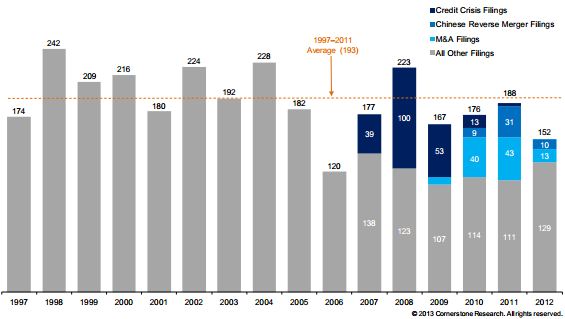
Our experts frequently write blog posts about the findings of the research we are conducting.
Investors Bristle at New Structured Product Valuations
Higher Expected Returns Only Come from Higher Risk: The Case of 130/30 Strategies
Fitch Rolls Out New Ratings Indenture Abstract
New FINRA Guidelines for Non-Traded and Private REITs
FINRA Fines Merrill Lynch for Failing to Provide Best Execution to Customers
Major Tenants-in-Common Sponsor Charged with Fraud
Fees on Structured Products Rise as Sales Increase
TD Ameritrade Data Suggests Retail Investors Use ETFs in 'Sophisticated Ways'
SEC Issues Letter Regarding Structured Product Valuation Disclosures
Securities Class Action Filings Decrease in 2012
